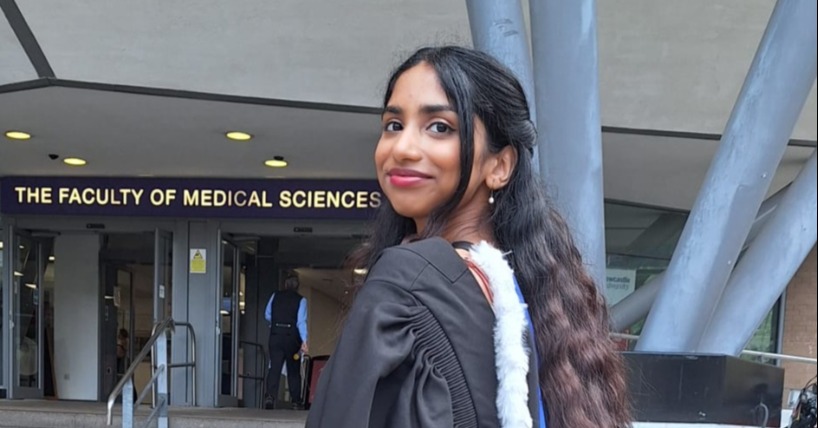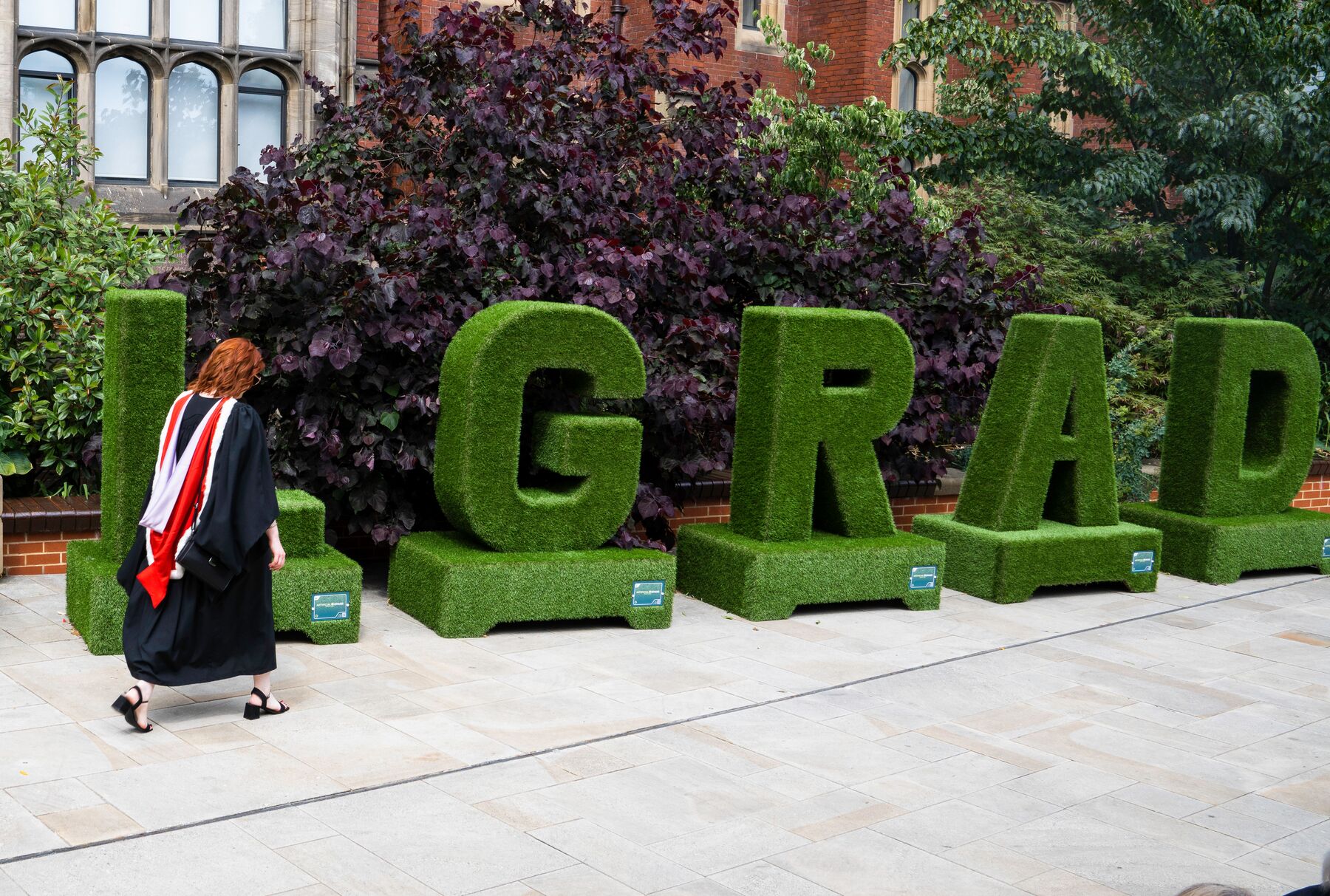Teres Thomas
BSc in Physiological Sciences
NHS Scientist Training Programme (STP) - Cardiac Science
I am currently in my first year of the cardiac science STP, and it is a three-year course funded by the National School of Healthcare Science. It’s a postgraduate programme that involves part-time studying and working. My university components are taught the Manchester Metropolitan University, and I am working under the Betsi Cadwaladr University Health Board. I have finished my university component for this year, and I am back in my trust hospital. Presently, I am doing 4-8 week rotations in ECG, Respiratory and Sleep, Cardiac and Vascular science. During this time, I will be completing training activities or competencies which involve utilising the university-taught components in a clinical environment and learning alongside.

The STP is a competitive programme with several specialities, and I found out about the cardiac science speciality in my first year through my lecturer. This made me transfer from Biomedical Sciences which I initially started on, to Physiological sciences, also due to the cardiovascular module which I was interested in. I started my research and preparation for the STP early on knowing its competitiveness, such as talking to the STP students at Newcastle University, voluntary work, applying for shadowing work experience etc. My lecturers were extremely helpful during the application process, especially Professor Christopher Eggett. The application was tough, and I applied to both the STP Welsh and England, separate applications. I was fortunate to succeed to the interview stages and secure a spot on my first attempt. What I believe helped boost my application was being flexible on relocating and getting opinions from various people on my application, in addition to the relevant clinical experience. Towards the end of the three years, I am hoping to specialise in echocardiography which is one of the main cardiac science specialities with the other being pacing.
What I love about my time at Newcastle University is the sense of community, and the city has a lot to offer with several university societies to involve yourself in - I was part of the Ecological Society, Sub Aqua Club (scuba diving) and the Biomedical Sciences Society. With my course cohort being smaller compared to other medical sciences disciplines, I personally felt that I got to know the teaching staff better and developed a stronger connection to my discipline.
My time at Newcastle prepared me well for this role. Whilst time management is something I still need to work on, I learned the importance of work-life balance by involving myself in extracurriculars like peer mentoring, summer research placement, Ncl-award and societies as mentioned. Being proactive, going out of my comfort zone and challenging myself helped me grow as an individual and towards writing a successful application. In terms of academics, I loved the ongoing research-based teaching integrated into our learning and aspects like Biomed+ talks which provide opportunities to explore areas of interest. The range of Physiological sciences-specific modules covered allowed me to gain a better understanding of human physiology overall. Specifically, topics such as the gut-brain axis, a newly popular area of research covered in the final year, challenge you to integrate knowledge accumulated from these various modules covered. I truly enjoyed my course and believe choosing Newcastle for University was one of the best decisions I made.
